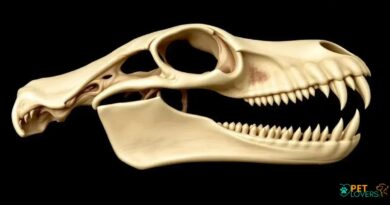What is Rotinas
What is Rotinas?
Rotinas refer to the daily schedules and activities that dog owners establish to ensure their pets are well cared for. These routines can include feeding times, exercise schedules, grooming, and training sessions. By creating a consistent routine, dog owners can help their pets feel secure and understand what to expect throughout the day.
The Importance of Establishing Rotinas
Establishing rotinas is crucial for a dog’s mental and physical well-being. Dogs thrive on predictability, and having a set schedule can reduce anxiety and behavioral issues. When dogs know when to expect meals, walks, and playtime, they are less likely to exhibit stress-related behaviors, making for a happier and healthier pet.
Components of Effective Rotinas
An effective rotina for dogs typically includes several key components: feeding, exercise, training, and socialization. Each of these elements plays a vital role in a dog’s overall health and happiness. For instance, regular feeding times help maintain a dog’s digestive health, while consistent exercise is essential for physical fitness and mental stimulation.
Feeding Rotinas
Feeding rotinas should be tailored to the specific needs of each dog, taking into account their age, size, and dietary requirements. Most dogs benefit from being fed at the same times each day, which can help regulate their metabolism and prevent obesity. Additionally, incorporating a variety of high-quality foods can keep mealtime interesting and nutritious.
Exercise Rotinas
Exercise is a fundamental part of any dog’s rotina. Regular walks, play sessions, and mental stimulation activities are essential for a dog’s physical health and emotional well-being. Depending on the breed and energy level of the dog, exercise routines can vary significantly, ranging from short walks to more vigorous activities like running or agility training.
Training Rotinas
Training should be an integral part of a dog’s daily rotina. Consistent training sessions help reinforce good behavior and strengthen the bond between the dog and its owner. Incorporating short, positive training sessions into the daily routine can lead to better obedience and a more well-adjusted pet. Techniques such as positive reinforcement can make training enjoyable for both the dog and the owner.
Socialization Rotinas
Socialization is another critical aspect of a dog’s rotina. Exposing dogs to different environments, people, and other animals helps them develop confidence and reduces the likelihood of fear-based behaviors. Regular outings to parks, dog-friendly events, or playdates with other dogs can enhance a dog’s social skills and overall happiness.
Adapting Rotinas for Different Life Stages
As dogs age, their needs and energy levels change, necessitating adjustments to their rotinas. Puppies require more frequent feeding and socialization, while senior dogs may need shorter, gentler exercise sessions. Being attentive to these changes and adapting the rotina accordingly ensures that dogs continue to thrive at every stage of their lives.
Common Challenges in Maintaining Rotinas
Maintaining consistent rotinas can be challenging for dog owners, especially with busy lifestyles. Factors such as work schedules, travel, or changes in family dynamics can disrupt established routines. However, finding ways to prioritize a dog’s needs, such as enlisting the help of a dog walker or pet sitter, can help ensure that the dog’s rotina remains intact.
Benefits of Consistent Rotinas
The benefits of maintaining consistent rotinas for dogs are numerous. Not only do they promote better behavior and health, but they also enhance the bond between the dog and its owner. A well-structured rotina can lead to a more harmonious household, where both the dog and owner understand and respect each other’s needs.




